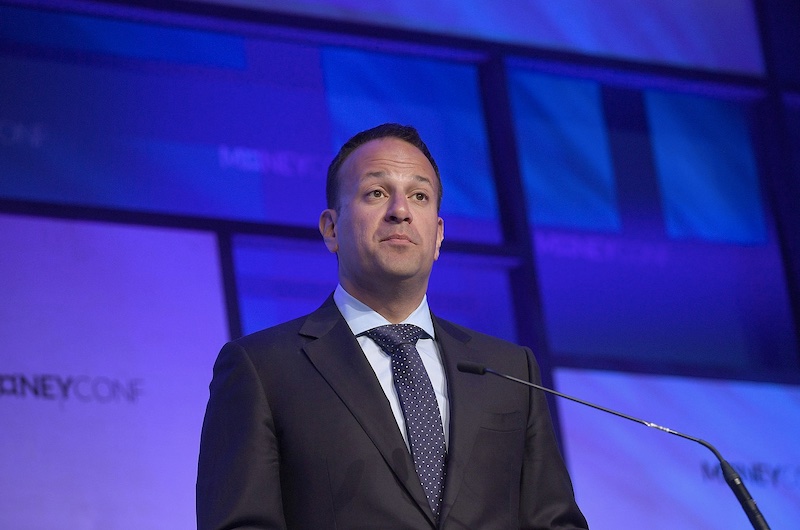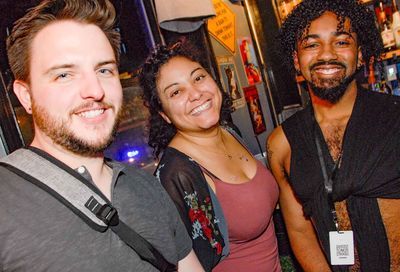India’s Supreme Court to reconsider law criminalizing gay sex
LGBTQ advocates say even though prosecutions under the law are rare, it should be declared unconstitutional

India’s Supreme Court has agreed to reconsider a 2013 decision that reinstated the country’s anti-sodomy laws and criminalized same-sex relations between consenting adults, reports The New York Times.
In the wake of that original decision, Indian citizens and even those of Indian heritage living elsewhere in the world, including Washington, held rallies and vigils to protest the court’s reactivation of Section 377 of the Indian Penal Code, which prohibits “carnal intercourse against the order of nature with any man, woman, or animal.”
But on Monday, the court responded to a petition filed by five members of India’s LGBTQ community, who claimed they felt persecuted and lived in constant fear that they would be arrested and jailed by overzealous police seeking to enforce the law. In response, a three-judge panel referred Section 377 to the full court for consideration.
“What is natural to one may not be natural to others,” the judges said in announcing their decision. “A section of people or individuals who exercise their choice should never remain in a state of fear.”
The judges also noted that “societal morality also changes from age to age,” adding: “Law copes with life and accordingly change takes place.”
The push from the LGBTQ community to repeal the law follows a decision by the court finding that all Indian citizens have a constitutional right to privacy. In the judgment, the court wrote that “sexual orientation is an essential attribute to privacy.”
Although the law is rarely enforced in India, activists say the threat of being turned in to police can lead to harassment, blackmail, and extortion of LGBTQ people. In those instances where it is enforced, being found in violation of Section 377 currently carries a 10-year prison sentence.
While it is typically enforced against men who engage in anal sex, the prohibition on “unnatural” acts includes oral or non-vaginal sex of any kind. About 200 people are estimated to have been prosecuted under the anti-sodomy law.
While the decision to revisit its 2013 ruling does not mean that the court will necessarily overturn the prohibition on certain types of sexual acts, LGBTQ advocates remain hopeful. The anti-sodomy law had previously been temporarily invalidated in 2009 by a New Delhi court, which found Section 377 unconstitutional. The government subsequently appealed the case to the Supreme Court, which restored the provision four years later, saying that if it is to be repealed, it should be repealed by Parliament.
“The two significant points that were made in the judgment in 2013 that reinstated the sodomy laws were: on the one hand, this only affected a miniscule minority; and it’s never enforced, so it doesn’t matter,” says Graeme Reid, the director of the Lesbian, Gay, Bisexual and Transgender Rights Program at Human Rights Watch. “Activists are pushing back against that, saying, ‘Well, that’s hardly the issue,’ as to how many times the law is actually implemented in terms of arresting and prosecuting people.
“The law does damage in terms of blackmail and extortion, but also in terms of people’s ability to live their lives fully, openly, and to express a significant part of the core of their identity. To have a law like that, that basically outlaws acting on same-sex desire, has a lot of far-reaching consequences for the way in which people are able to live their lives.”
Anand Grover, a lawyer leading the charge to invalidate the anti-sodomy law, said the court might issue a new decision in the first half of the year.
But Harish Iyer, a prominent LGBTQ activist and radio host, urged LGBTQ people to exercise caution, noting that the court has disappointed the community in the past.
“We are being cautiously optimistic about the development today,” he told the Thomson Reuters Foundation. “We have climbed mountains of hope in the past and come toppling down.”
Support Metro Weekly’s Journalism
These are challenging times for news organizations. And yet it’s crucial we stay active and provide vital resources and information to both our local readers and the world. So won’t you please take a moment and consider supporting Metro Weekly with a membership? For as little as $5 a month, you can help ensure Metro Weekly magazine and MetroWeekly.com remain free, viable resources as we provide the best, most diverse, culturally-resonant LGBTQ coverage in both the D.C. region and around the world. Memberships come with exclusive perks and discounts, your own personal digital delivery of each week’s magazine (and an archive), access to our Member's Lounge when it launches this fall, and exclusive members-only items like Metro Weekly Membership Mugs and Tote Bags! Check out all our membership levels here and please join us today!






















